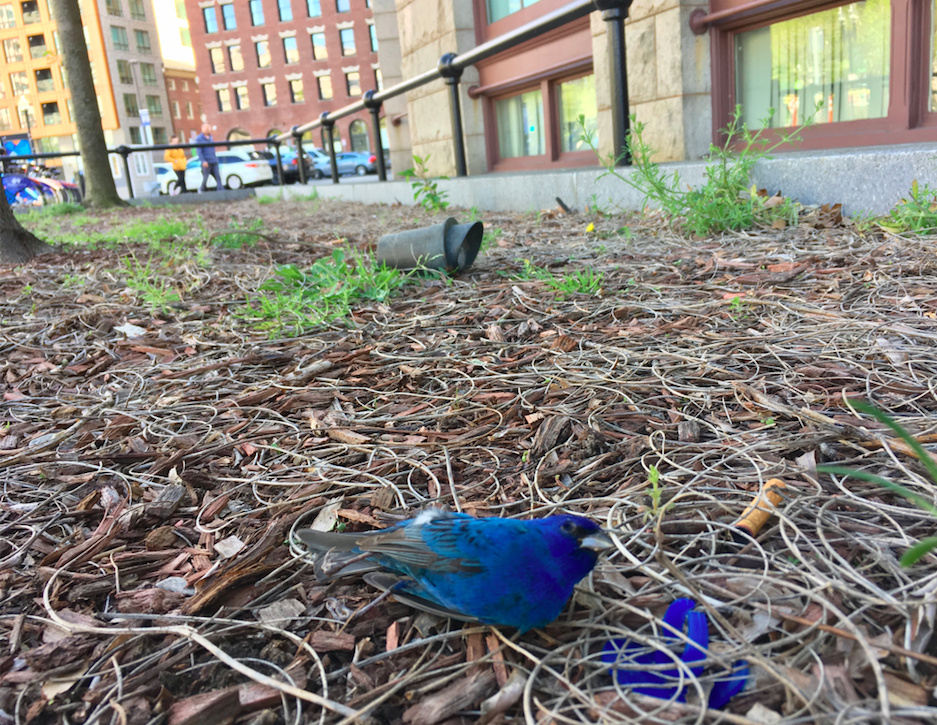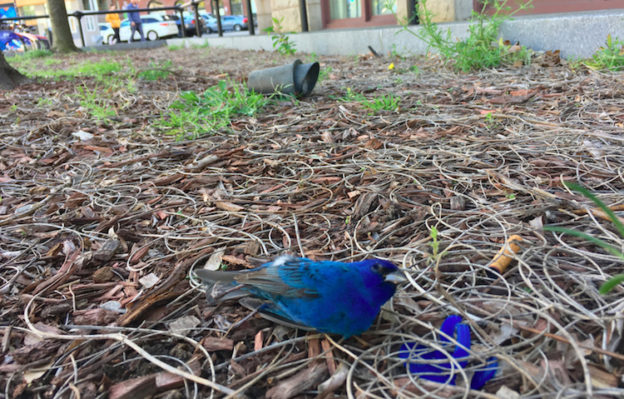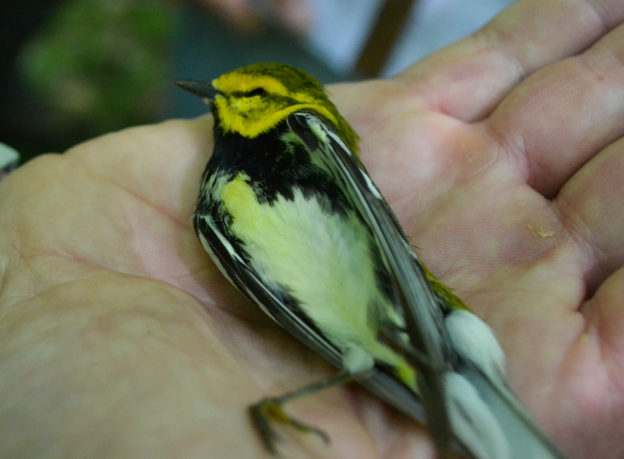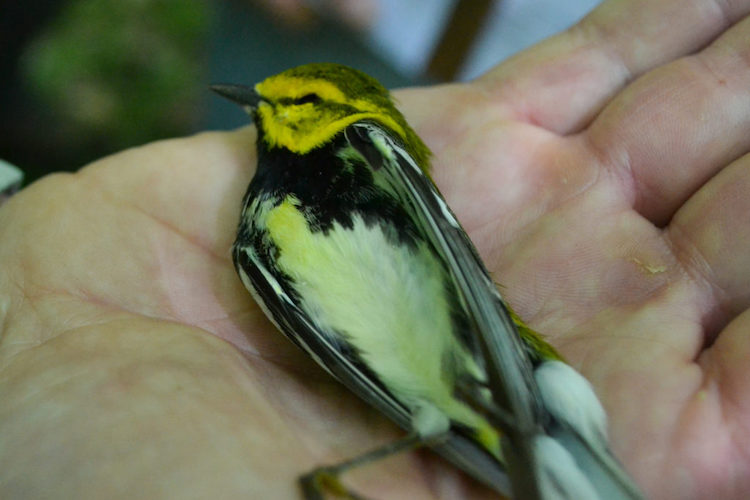Here’s an easy way for anyone living or working in Boston to help migratory birds: help monitor window collisions!

Mass Audubon is seeking new volunteers for the fall season of the Avian Collision Team (ACT). ACT is an initiative to collect data on bird–building collisions, and to rescue injured birds.
This spring, the team of birders, conservationists, and other concerned citizens observed 115 birds across 38 species affected by window strikes. This fall, and in coming seasons, we need to keep up the momentum and grow our dataset.
The Problem
Window collisions are an under–appreciated source of bird mortality in the US, causing several hundred million casualties annually.
Birds struggle to distinguish reflections from reality, and often strike glass windows that reflect the sky or nearby greenery. City lights also confuse night-migrating birds, which use the stars to navigate, and which often land near sources of light pollution. Many window strikes occur as birds try to re-orient in the morning, after being drawn in to an unfamiliar concrete jungle.
Project Details
The program runs from August 24–October 28 in downtown Boston. Volunteers need to sign up for 1-4 weekly shifts, Saturday–Tuesday, that can take place between 6-9am. Most shifts last around 30-60 minutes.
Volunteers walk predetermined routes through downtown Boston to photograph or collect deceased specimens, fill out data sheets, and occasionally rescue live birds. We’ll be holding volunteer trainings on August 11, 18, and 22.
Carrying out ACT surveys can be an eye-opening experience, between watching the city as it’s waking up, discovering seemingly out-of-place warblers, buntings, and vireos, and occasionally saving the life of an errant, injured migrant. And once you’ve found your first few birds, a collector’s instinct sometimes kicks in, making the search all the more engaging. It’s like birding with a twist– a sense of urgency, purpose, and sometimes, a touch of sadness.
If this sounds compelling, sign up here!




